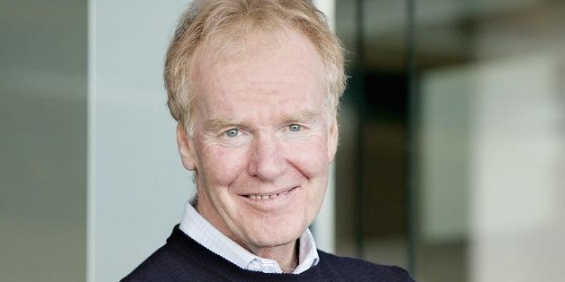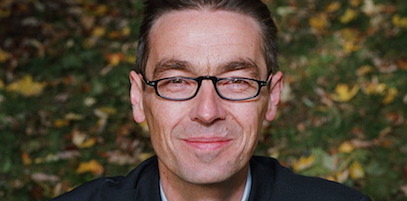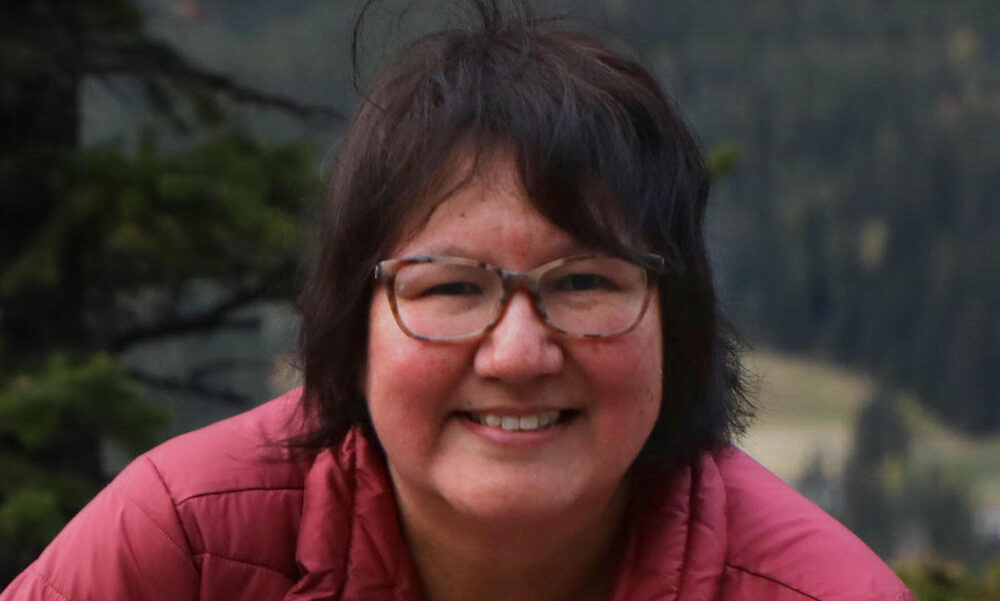Hosted by The Presencing Institute
Reconnecting to Place and Re-shaping Our Future
The world’s institutions – business, education, governance, community development – and the hierarchical leadership models that shapes and animates them do not match the reality we face. The defining challenges of this age are not just climate change and inequity but the pervasive sense of fatalism and hopelessness they engender. Waiting for ‘the bosses at the top’ to solve these problems presumes they have the power to do so. But they have no magic levers to shift shared values nor silver bullet policies to alter institutional habits shaped over centuries. Meanwhile, our continuing relentless destruction of natural, social, and cultural capital makes the whole world a poorer and far less hospitable place.
But collapse, in natural and human systems, is also a time of rebirth, and there is growing evidence that long-lived cultures, like indigenous societies that have survived many millennia, have also gone through epochs of collapse and regeneration – and learning.
We believe that, amidst the chaos and fear, this is happening today as leaders at all levels, within and outside positions of formal authority and power, and across all sectors, are helping us re-direct ourselves around new guiding question. We have chased the chimera of GDP growth for centuries; how can we re-orient our societies to genuine social and ecological well-being? We have fostered a global epidemic of stress, anxiety and suicides (which increased almost 100% among US teenagers in the decade before COVID); how can we make mindfulness, compassion and genuine human connection and development mainstream priorities? We have sanctioned businesses that seek profit at any cost and schools that still educate young people in the skills and mindset of the Industrial Age; how can we re-create these core institutions as loci of (local and global) connectedness and balance?
Questions of this ilk do not have definitive answers; their power comes from holding them patiently yet resolutely, and we believe the energy and courage to do so is coming from an awakening relational sensibility that is very old. Tewa Indian teacher Gregory Cajete synthesized diverse tribal traditions of the Americas into three inseparable imperatives: individuation – the conviction that each person has distinctive gifts and a unique purpose – community – that discovering and realizing these gifts draws from and shapes our collective well-being –and land – that all this is guided by the sacred living presence of this place. These three represent an indivisible wholeness, but our experience over many years with the ECW has offered some lessons regarding a neglected focus that we continue to explore each August.
The ECW
The Blackfoot Indians say that our first relationship is with Mother Earth, and if that relationship is damaged, all others will suffer as well. Perhaps, this is exactly what is most lacking today – to re-anchor our relational sensibility of self and other in returning home to here.
Starting in the late 1990s, the ECW has offered a unique space for reflection and conversation around this theme because it is anchored in a place – in this case, the quiet energy of the Green Mountains of northern Vermont at the Trapp Family Lodge. Building on the Trapp family’s stewardship of this land for 80 years, the program, held outside in a tent for three days, has deeply touched many of us. It has rained, sometimes fiercely. The wind has blown so strongly that we have had to hastily gather up our chairs and small café tables. And the sun has shown brilliantly – mercifully, most of the time. Most of all, we have come to know the trees, the birds, the grass and the stone walls as our companions on a journey of slowing down and paying attention in a different way.
This is not a journey of a few years or even decades, and it is not a journey of the head only. Reconnecting to land starts with how our whole mind-heart-body system re-awakens to its ancestry as an expression of the Earth system. This is why the ECW integrates contemplative practices and reflective conversation with native teachings and Social Presencing Theatre – to tap multiple modalities of attending and cultivating systems intelligence. Doing this together with diverse leaders from around the world helps us understand both the differences of doing such work in very different cultural and political realities and yet the commonality of the challenges we all face.
Who is this program for
The ECW brings together diverse leaders from around the world who share a vision of helping people connect more deeply to place and to one another as a basis for regenerating the institutions that shape our society. The participants come from a variety of sectors and contexts and operate at many levels of formal authority, from CEOs to community organizers.
We also aspire to a mix of ages. Iconic challenges like climate change and poverty are naturally seen and felt very differently by people in their twenties versus sixties. While formal authority still may often be correlated with chronological age, genuine leadership in this age of profoundly emergent and unprecedented challenges is not – as the global youth climate movement has shown.
That said, one criterion we have maintained in the ECW is that the program is primarily for “practitioners”, people who have to build teams to accomplish tangible results. We ask individuals who see themselves as primarily consultants or helpers to others to come with their key “clients” or practitioner partners, so as to maintain the focus on practical outcomes.
Last, the ECW is not an introductory program, and we strongly recommend that all participants have come to a prior capacity-building program such as those offered by the Presencing Institute or The Center for Systems Awareness. For those who have not, there are several online options available prior to this summer:
– Center programs
– https://www.u-school.org/offerings/ulab-0x
– https://www.u-school.org/programs#open-programs
The ECW is more retreat than training, and it helps for people to come with a basic familiarity with tools of awareness-based systems change. In the end, the quality of the program depends on the quality of people’s participation, since so much of the learning arises with and from one another.
The Facilitation Team

Peter Senge
Peter Senge, teacher, researcher, author of The Fifth Discipline and related books, MIT & The Center for Systems Awareness

Otto Scharmer
Otto Scharmer, teacher, researcher, author of Theory U and related books, MIT Sloan School of Management & the Presencing Institute

Arawana Hayashi
dancer, meditation teacher, co-inventor of Social Presencing Theatre, the Presencing Institute and The Art of a True Move

Melanie Goodchild
Anishinaabe teacher, Faculty Director, Algoma University & the Wolf Willow Institute for Systems Learning, the Presencing Institute
What happens at the ECW
As a way to explore this territory, the program is organized around different practices in our common work on awareness-based systems change: systems thinking and organizational learning, Theory U, Social Presencing Theatre, and indigenous methods of holding sacred space. Over the years, the potent combination of these tools and practices in concert with the energy of this special place have shaped spaces for deep conversations amongst peers around questions that have heart and meaning.
The ECW offers a highly interactive program that builds on a variety of tools, concepts and processes (and even a few short presentations!) such as:
- Starting off “in a good way:” Ritual ways of arriving, grounding and checking in with one another and the social-ecological field
- Personal and collective contemplative practices
- Social Presencing Theatre to connect us more intimately with the three fields within which we always operate: the individual mind-heart body, the “social body,” and the larger “earth body”
- “World Cafes” that hold and weave small group conversations
- “Case clinics” to cultivate collective creativity around tangible leadership challenges
- Dialogue walks and other opportunities for learning with and from one another
Through it all, we will explore how we:
- sense and cultivate a more generative social field,
- appreciate and practice the basics of what it means to think and act systemically, and
- understand together the deeper dynamics of social evolution unfolding all around us and how they are shaping the challenges and possibilities for individual and institutional change in today’s reality.
All this is guided by our conviction that the changes needed in the world unfold at multiple levels, from the individual to the team, to the organization, cross-organization, and community and industry levels.
Price
Includes tuition and all meals – breakfast, lunch, breaks, and formal dinner – for three days (the meal package costs of $664 USD is mandatory and cannot be excluded.)
Early Bird (end February 14, 2024)
- Corporate/Professional: $4564 (= $3900 workshop tuition + $664 meal package)
- Nonprofit, Academic or Government Institution: $3814 (= $3150 workshop tuition + $664 meal package)
- Public school educators $3064 (= $2400 workshop tuition + $664 meal package)
Regular Price (after February 14, 2024)
- Corporate/Professional: $4,864 (= $4200 workshop tuition + $664 meal package)
- Nonprofit, Academic or Government Institution: $4,064 (= $3400 workshop tuition + $664 meal package)
- Public school educators: $3248 (team: $2,948)
Group Rates: 10% off regular price, minimum 3 participants (please get in touch for a purchase code)
Scholarships: A limited number of scholarships for the rate of $2164 (= $1500 workshop tuition + $664 meal package) are available. If you’re interested in applying for a scholarship, please share with us why you feel you should be considered for this opportunity when filling in the registration form. We welcome your application and aim to create an inclusive experience for all.
Workshop Logistics
Schedule
The ECW is designed as a full three-day retreat. We start with a mid-afternoon (3pm) gathering August 20, followed by a welcoming reception and dinner, and end with lunch (2pm) on August 23. Breakfast, lunch and dinner are included for all three days.
Accommodations Terms
If you are staying at the Trapp Family Lodge, please make your room reservations. The special room rate for the participants is $953.70. This rate includes 3-nights lodging. As this is the main tourist season, it is very likely that the rooms at the Lodge will sell out quickly. Please call the Trapp Family Lodge as soon as possible at 1-800-826-7000 ext. 1 (toll free), at +1-802-253-8511, or email reservations@trappfamily.com. Be sure to reference the “Executive Champions’ Workshop” when making your room reservation to get the special ECW rate. The cutoff date for the room block at this special rate is Friday, July 19.
Many years ago, a vice president from the World Bank, famous for her work around global sustainability, commented near the end of our time together in Vermont, “If we had signed the Kyoto protocols in a tent like this, the outcomes would have been very different.” It is time to re-learn that genuine intention comes not from human will but from nature’s voice – and how to listen to that voice.
Transportation
The Trapp Family Lodge is approx. 45 min. from Burlington, VT (50 miles), approx. 2-2.5 hours from Montreal, ON (140 miles) and approx. 3.5-4 hours from Boston, MA or from Hartford, CT (220 miles) Rental car services are available at airport terminals. Directions can be found at http://www.trappfamily.com/directions.
Cancellation and Substitution Policy
All cancellations must be received in writing. The amount paid minus a $300.00 processing fee will be refunded for all cancellations received in writing six (6) weeks before the first day of the workshop. For international credit card users: Currency fluctuations occur. Refunds, if requested, will be made in USD at the exchange rate in effect at the time the refund is processed. The Presenting Institute will not be responsible for any loss incurred by card holder. NO refunds will be granted for cancellations received on or after this date. You may arrange for a substitute participant at least two (2) weeks before the program. Should the the Presenting Institute need to cancel the program, participants will receive a refund of their tuition, but no reimbursement for booked flights or other travel or program-related expenses.
Questions?
Feel free to reach out with any questions: Diane Nakashian or Patricia Bohl ecw@presencing.org